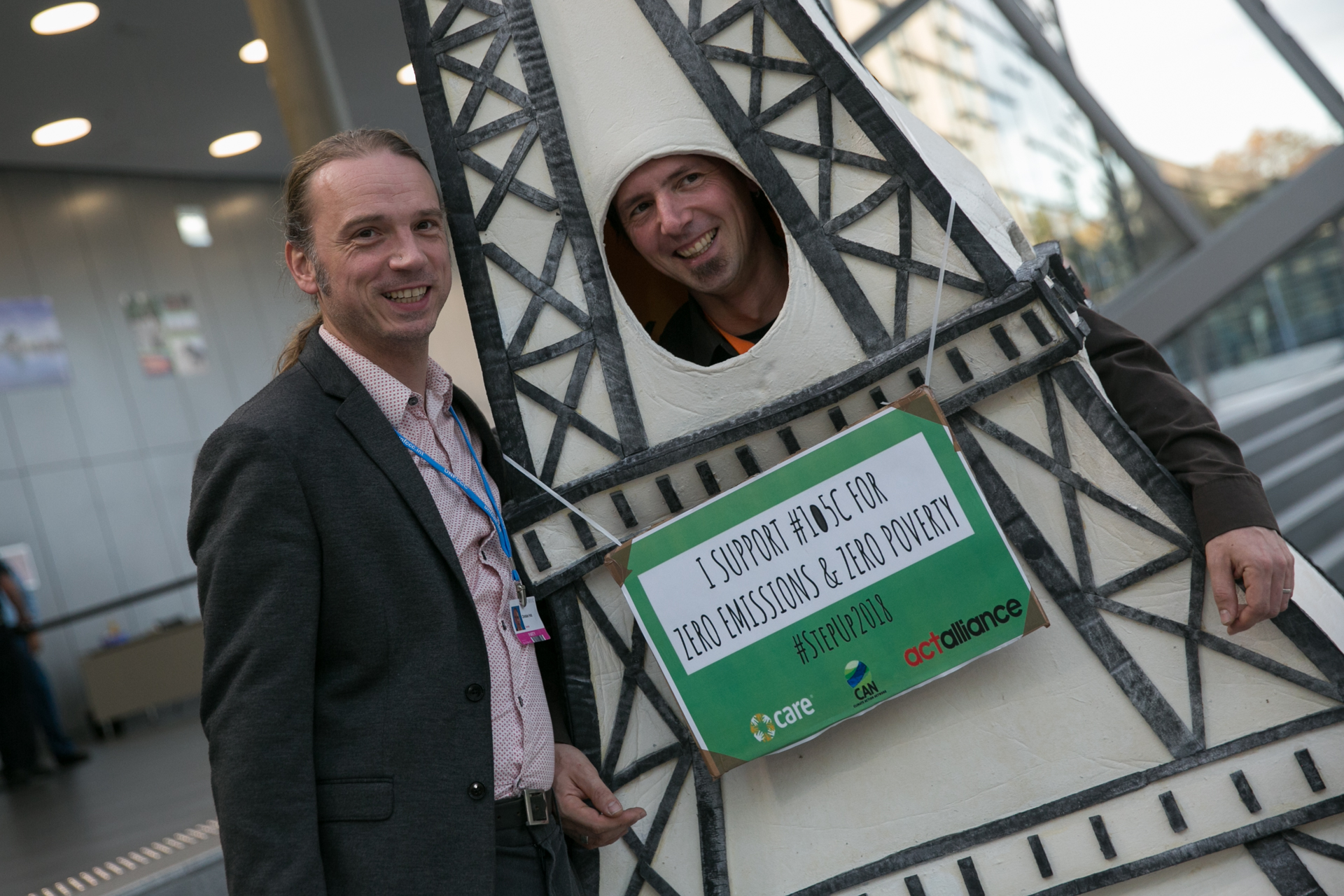
Christian Holz (left) photographed with a human Eiffel Tower that roamed the venue of the UN climate summit to remind delegates of the commitments of the Paris Agreement, Photo by IISD/ENB | Kiara Worth
The annual United Nations climate summit took place in Bonn, Germany from November 6 to 17, 2017. At these annual conferences, the governments of the world come together to negotiate their collective response to the thread of climate change. At a similar conference in 2015, the landmark Paris Agreement was adopted and this year in Bonn, negotiators were tasked to further elaborate the implementation of that Agreement, including how to do the periodic “stocktaking” exercises that are intended to help countries to raise their climate action ambition.
In this context, DGES post-doctoral researcher, Christian Holz presented lessons learned from such a stock-take exercise that takes a principled climate-justice-based approach has been carried out annually for three years by a large, broad and diverse coalition of global civil society organizations [1]. Together with his collaborators, Christian had developed and published the analytical foundation of this broader undertaking [2]. They find that using ethically-grounded analysis of relevant quantitative data, it is possible as well as insightful to calculate how much each country should equitably be expected to contribute to the global struggle against climate change and then to compare these “fair shares” with the climate action pledges they actually made. This allows identifying leaders and laggards and areas where more effort is needed.
[1] CSO Review (2017) Fair Shares: A Civil Society Equity Review of INDCs. Manilla, London, Cape Town, Washington, et al.: CSO Equity Review Coalition. [http://civilsocietyreview.org/report2017]
[2] Holz, Christian; Sivan Kartha and Tom Athanasiou (2017) “Fairly Sharing 1.5 – National Fair Shares of a 1.5°C-compliant Global Mitigation Effort” in International Environmental Agreements: Politics, Law and Economics, Special Issue: Achieving 1.5°C and Climate Justice. [https://doi.org/10.1007/s10784-017-9371-z]